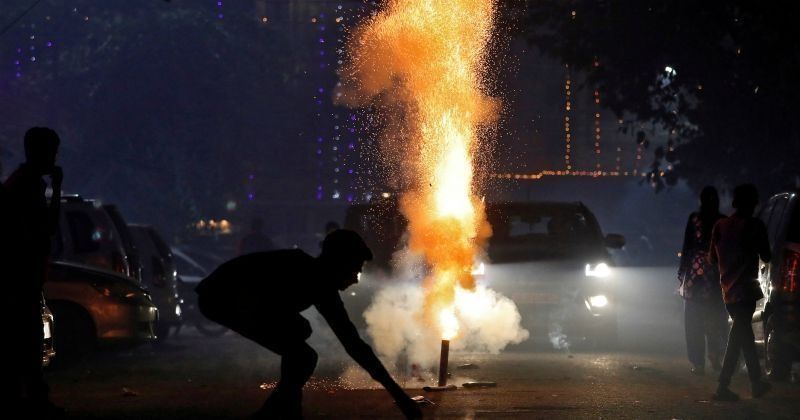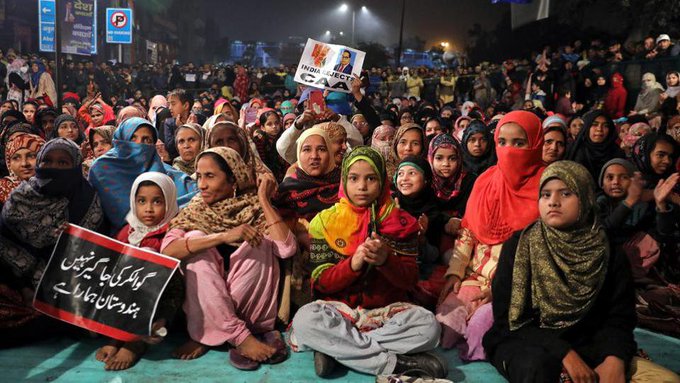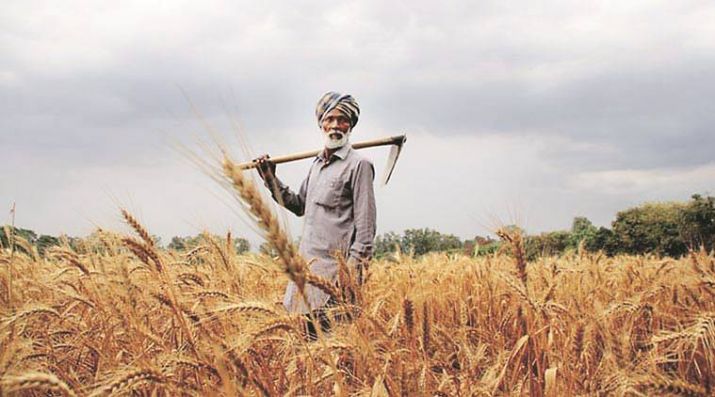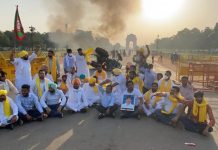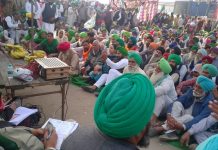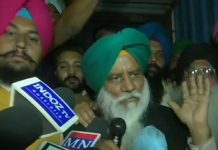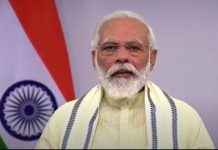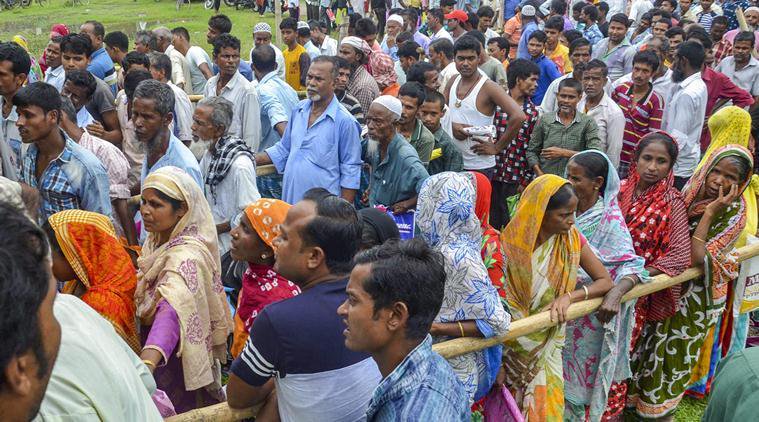Its festive time in our country. There is joyous energy in the air, which can be felt everywhere. Social media is brimming with posts expressing Diwali greetings, and the lanes of the city are dazzling with lights. The market is witnessing a surge in sales even in times of economic slowdown. All in all, everything looks colourful and full of glitz. Like everyone, I also love festivals for the gush of energy, colour and joy that it brings in our mundane lives; however, lately I have been feeling a sense of uneasiness in celebrating festivals. One of the reasons for this uneasiness is the extent to which festivals have become commoditized that a genuine sense of celebration and togetherness is lost somewhere in the matrix of the market. Another reason for my discomfort is the legitimacy to rampant conspicuous consumption that these festive celebrations provide. The vulgarity of this phenomenon is clearly visible in the ‘Diwali parties,’ which have become another occasion for the rich and the privileged to showcase their wealth and social networks. The pollution through firecrackers and the kind of waste we generate during festivals are other sources of annoyance for me. Despite all these concerns of mine, I have always celebrated Diwali with friends and family in whatever ways possible because it brings positivity and joy in our mundane disenchanting city lives.
Festivals, if celebrated in the true spirit of togetherness acknowledging our connectedness with nature and other fellow beings, can be life-affirming. However, I have decided not to celebrate Diwali this year because my inner conscience does not allow me to indulge in celebrations when I know that there are people in one part of our beloved nation who have been forced to live amidst fear and uncertainty for almost three months now. In another part of the country, detention camps are being built for people who have suddenly become non-citizens of this nation-state even after staying in this country for decades. Also, we have been witnessing the violence of most unhuman kinds in recent times when citizens of this country have been lynched on the mere allegations of cow slaughter and beef-eating. I cannot celebrate Diwali because the visuals of a newly married young man called Tabrej Ansari from my state Jharkhand being thrashed to death by a barbaric mob haunts me. How can I be indifferent and ignorant to all these violence and brutality when I try to light a lamp to celebrate the return of Lord Ram to his home after his victory over Ravana. This celebration of the victory of Good over Evil seems too hypocritical in the face of the brute reality. Let Lord Rama come home this year and see the violence and brutality of his people. Let him see the utter darkness and apathy which marks our lives that otherwise is rendered invisible by the dazzling lights of Diwali celebrations.
I would take a detour here by arguing that on the midnight of 14th August, when Jawaharlal Nehru made the famous ‘tryst with destiny’ speech, a promise of a new beginning was made to the people of the newly independent country. A promise was made in the constituent assembly, envisaging a nation-building process built on the foundations of justice, equality, liberty, and fraternity. The promise of a nation built on the idea of equality, liberty, and fraternity was a bold promise to make after the bloodbath of partition in a deeply hierarchical and diverse country like ours. However, this promise finally got ingrained in our constitution, and we collectively committed to staying true to the promise to build a strong nation based on the ideals of justice, equality, liberty, and fraternity. We did not become a nation automatically and gain substantive freedom in 1947, but the leaders of our freedom struggle made a promise of freedom and nation-building in which the people of the newly independent India had to play an active part. The constitution of free India tried to create a roadmap to materialise this imagination of India and tried to combine freedom and equality with social justice. The most difficult task was to foster the feeling of fraternity in a country divided in terms of caste, class, language, religion and region. Ambedkar realized the need to cultivate fraternity in a deeply divided society in order to move towards a nation defined by unity and solidarity. He argued that “without fraternity, equality and liberty will be no deeper than a coat of paint.” Fraternity as a feeling and a political principle was difficult to embed in a deeply divided Indian society. Cultivation of a fraternal feeling among the people was supposed to be a long and tedious pedagogical task. Not only the educational institutions but also cultural and social rituals and performances had to help cultivate the feeling of togetherness and solidarity among diverse sections of the Indian population. We as a society, have failed miserably to carry out our responsibility. Today as a country, we are more divided than ever, and we have to blame ourselves for the threatening lack of fraternal feeling in our society.
The public celebrations of the festivals do not only allow us to express our cultural and religious diversity, but also the openness of these festivals to diverse ‘publics’ irrespective of their identity allows us to develop a sense of fellow feeling. The festivals are not just about mechanical performances of rituals, it takes place within a historically situated time, and space and hence expresses the essence of that moment of history. The myths and philosophy behind the festivals need not be forgotten in the fanfare of celebration Also, festivals are not politically neutral and always gets marked by the balances of power in the society. It is not a mere coincidence that the market and a certain logic of Hindutva supremacy has penetrated Hindu festivals. However, festivals by the very virtue of its public visibility and its ritual designation as ‘special time’ provides an occasion for a certain kind of social and cultural critique of dominant forces in the society. I want to invoke this aspect of protest that a festival like Diwali provides us to reflect on the sheer absence of fraternal feeling in our so-called nation. I argue that we cannot claim to be a nation with such brutal indifference to the violence and suffering of the people of our own country. We have to accept that we are a nation in the making, and if we want that India becomes a strong nation, we not only ought to celebrate but also empathise and mourn the suffering of our fellow citizens of our country. I think that our cultural repertoires (myths, rituals and oral histories) that define our festivals and cultural events need to be mobilised to voice out the moral and ethical concerns about the contemporary nature of our society.
I have decided not to celebrate Diwali as a protest against the injustices and brutalities committed in the name of the nation against the people of this very nation. I would not urge others not to celebrate Diwali. However, I would urge everyone to reflect on the larger socio-political situation when we celebrate Diwali and also think about the myth and philosophy that defines this festival of light. I hope while lighting hundreds of lamps and candles, we all also light a candle to remember those who do not have the privilege to celebrate. While writing thousands of Diwali greetings, I hope we will also write something acknowledging the brute realities amidst which we will happily celebrate the festival of light amidst the abyss of darkness in our conscience. The celebration of the victory of good over evil should not appear too shallow; at least we should pretend to be aware of the evil that is part of all of us.
Kunal Nath Shahdeo, currently pursuing my PhD in Sociology from the Department of Humanities and Social Sciences, IIT Bombay.

